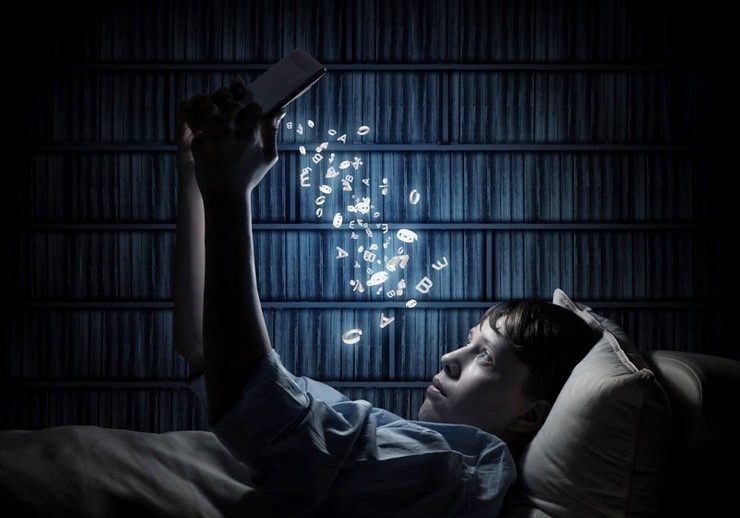SUMMARY
This is AI generated summarization, which may have errors. For context, always refer to the full article.

MANILA, Philippines – Do you use your touchscreen phones, tablets or laptops to unwind right before going to sleep? You might want to rethink that habit.
A study conducted by doctors from the Brigham and Women’s Hospital and the Harvard Medical School indicated the use of “light-emitting electronic devices for reading, communication, and entertainment” before sleeping messes up a person’s sleeping cycle.
In an abstract published on Proceedings of the National Academy of Sciences of the United States of America website, researchers found using the gadgets before bedtime “prolongs the time it takes to fall asleep, delays the circadian clock, suppresses levels of the sleep-promoting hormone melatonin, reduces the amount and delays the timing of REM (rapid eye movement) sleep, and reduces alertness the following morning.”
Circadian rhythms are “physical, mental and behavioral changes that follow a roughly 24-hour cycle, responding primarily to light and darkness in an organism’s environment,” according to the US’ National Institute for General Medical Sciences.
The study, conducted by Anne-Marie Chang, Daniel Aeschbach, Jeanne F. Duffy, and Charles A. Czeisler, said the devices also “increase alertness,” making it harder to fall asleep.
12 adults, 2 weeks
Citing other studies, the researchers noted some 90% of Americans said they used electronic devices in the hour leading up to bedtime.
In this particular study, the researchers compared the impact of using a light-emitting eBook to fall asleep, as compared to a printed book. The study involved 12 adults in their 20s who lived in a private room for 2 weeks.
All participants were given a fixed 8-hour sleep schedule from 10 pm to 6 am the next day.
“Participants reading an LE-eBook took longer to fall asleep and had reduced evening sleepiness, reduced melatonin secretion, later timing of their circadian clock, and reduced next-morning alertness than when reading a printed book,” read the study’s abstract.
Paper books, old Kindle okay
But not all ebooks adversely affect sleep.
In an interview with the BBC News website, lead researcher Professor Czeisler said printed books or the original Kindle “only exposed…reflected light from the pages of the book [into the eyes of users]” compared to most electronic devices which shine light directly into the eyes.
Czeisler warned getting less sleep “has been shown to increase the risk of cardiovascular disease, metabolic diseases like obesity and diabetes, and cancer.”
“Thus, the melatonin suppression that we saw in this study among participants when they were reading from the light-emitting e-reader concerns us,” he told the BBC.
Are you among the many who use light-emitting devices right before bedtime? Have they affected your sleeping patterns? – Rappler.com
Young teenager guy in bed using tablet pc image from Shutterstock
Add a comment
How does this make you feel?
There are no comments yet. Add your comment to start the conversation.